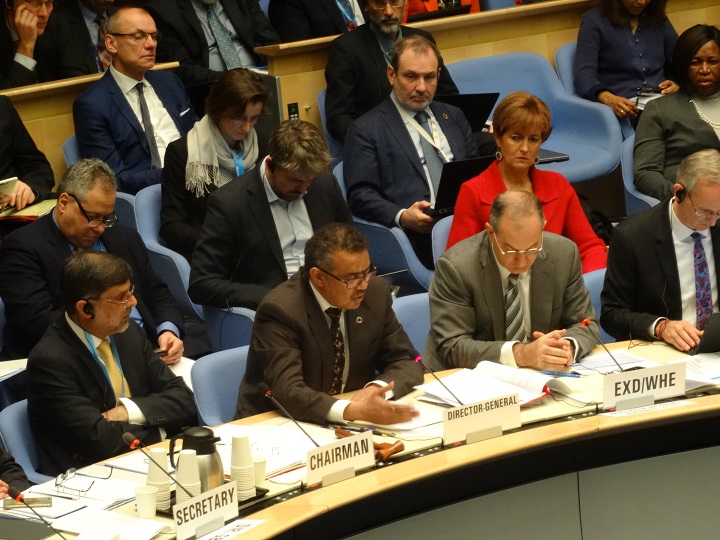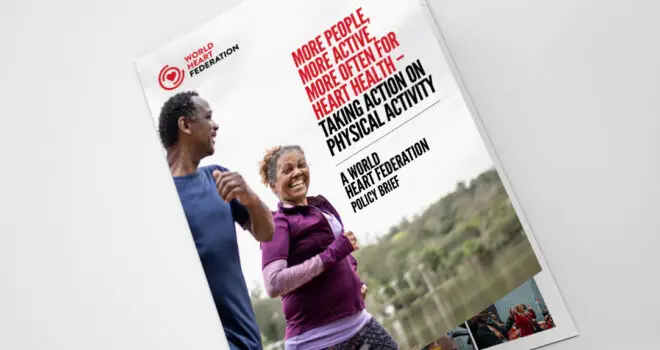
At the upcoming 142nd session of the World Health Organization (WHO) Executive Board (EB142), non-communicable diseases (NCDs) feature prominently on the agenda, as Member States look ahead to the third High-level Meeting of the General Assembly on the Prevention and Control of Non-communicable Diseases.
This meeting – to be held in New York City in 2018 – will play a vital role in holding Member States accountable by measuring their progress towards global targets to tackle NCDs.
As always, World Heart Federation Member Partners, Board Members and staff will deliver policy statements and participate in the Executive Board meeting, which will be held from 22-27 January 2018 at the headquarters of the WHO in Geneva, Switzerland.
Physical activity will also be a key topic for discussion, as countries debate the draft version of a new Global Action Plan to Promote Physical Activity, which sets a target to reduce physical inactivity among adults and adolescents by 15% by 2030.
Thirteenth General Programme of Work (GPW13)
Governments will also discuss the most recent draft of WHO’s proposed Thirteenth General Programme of Work. This strategy document, if approved by governments at the World Health Assembly in 2018, will guide WHO’s work from 2019-2023.
This debate follows a Special Session of the Executive Board that was held in November 2017 to offer governments and civil society an opportunity to provide more extensive comments.
How can I find out more?
The provisional agenda with more detailed information on the Executive Board meeting is available here. For more information, please go to our website, read Members’ News or follow us on Twitter, where we will be posting updates as more reports are released.
The WHF Advocacy Team will also record a webinar to provide Members with more information on EB142; this will be shared prior to the meeting.
What is the Executive Board?
The Executive Board (EB) is comprised of 34 individuals from all six WHO regions and meets twice annually, in January and May/June. These health experts serve on three-year rotations, however all WHO Member States (countries) participate in the discussions at EB meetings. During the sessions, Member States debate pressing global health issues and propose draft resolutions to tackle these problems, which are then submitted for consideration by the World Health Assembly.


